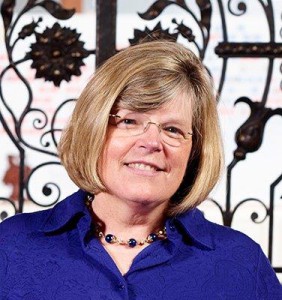 In a recent blog post on preparing a project for publication, Scott Steward targeted that essential shift in thinking that must occur as you translate your research project into a writing project. And he pointed out how important it is to write a table of contents . . . and a title.
In a recent blog post on preparing a project for publication, Scott Steward targeted that essential shift in thinking that must occur as you translate your research project into a writing project. And he pointed out how important it is to write a table of contents . . . and a title.
After talking at length with attendees at our Writing and Publishing Seminar about their projects, I realized that TOCs and titles figured large in those conversations. So here are three more thoughts on the topic:
- Your table of contents might be very simple. If you’re writing a multigenerational treatment in Register style, Chapter 1 might be Generation 1, Chapter 2 might be Generation 2, and so on. But such a list still tells you something, and the number of chapters (and generations) tells you something else: that you’re beginning at a certain place and telling the story for a certain number of generations. If nothing else, your TOC will serve as a checklist as you record each generation.
- If you are incorporating information about allied families, or family stories, or narrative context, or transcriptions of wills, try composing a detailed table of contents: not just chapter titles but subheads as well. Then look at the story that your TOC tells. Is the balance right? Are all the elements central to your family history, or might some — say, transcriptions — fit better in an appendix?
I just relearned that lesson yet again. I had pored over the contents of a project many times, but only after I decided to make a detailed TOC did I see that the chapters lacked parallel structure. And now all chapters are nicely parallel.
- Composing a TOC is indeed an essential part of the writing process, but so is composing a working title—which essentially establishes your scope. Consider the following:
The Descendants of Judge John Lowell of Newburyport, Massachusetts
Ancestors and Descendants of George Rufus Brown and Alice Nelson Pratt
Some Descendants of Roger Billings of Dorchester, Massachusetts
Each title states exactly what each book is about: all descendants of Judge John Lowell; an attempt to trace all ancestors of a certain couple, then their descendants; some descendants of Roger Billings. That final title is one of the most instructive, because it shows that you have the power to limit your scope. The important ancestor is Roger Billings, but it’s OK to trace only some of his descendants. It is still a valid and authoritative family history.
Share this:
About Penny Stratton
A veteran of the book publishing industry, Penny Stratton retired as NEHGS Publishing Director in June 2016; she continues to consult with the Society on publications projects. Among the more than 65 titles she managed at NEHGS are The Great Migration Directory, Elements of Genealogical Analysis, Genealogist’s Handbook for New England Research, and the award-winning Descendants of Judge John Lowell of Newburyport, Massachusetts. She has written for American Ancestors magazine and is a regular poster on Vita Brevis. With Henry B. Hoff, Penny is coauthor of Guide to Genealogical Writing: How to Write and Publish Your Family History; she is also the author of several Portable Genealogists on writing and publishing topics.View all posts by Penny Stratton →